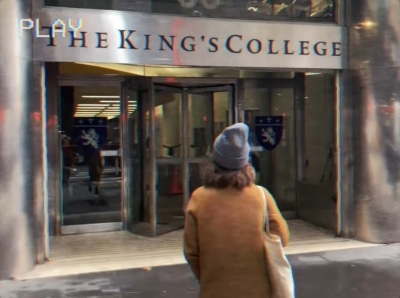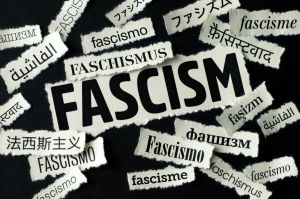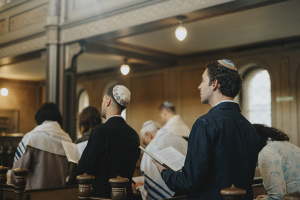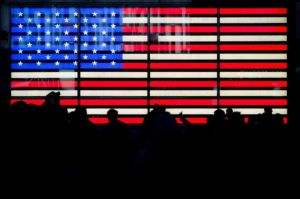The decline of the King’s College reflects Western civilizational decay

Earlier this month, The King’s College in New York City announced it was canceling classes for the fall semester, laying off most of its faculty and staff, and struggling to recover its recently revoked academic accreditation. The fate of Manhattan’s most prominent Christian Evangelical college — a school rooted in the political and literary canon of Western civilization — is uncertain.
Nevertheless, the decline of The King’s College is bound up not only with the ills of higher education but also with the deeper cultural crisis affecting America and the West.
Having served as a professor of history at King’s for more than a decade, I am aware of the college’s challenges and self-inflicted wounds. But if the college fails, its failure cannot be blamed exclusively on the impact of COVID-19, rising crime rates, declining enrollment, or tangle-footed leadership. Something much deeper, and more debilitating, is at work: a collective indifference about the remarkable inheritance of our Judeo-Christian civilization and our moral obligation to preserve it for each generation.
On the political and cultural Left, this indifference often amounts to contempt. Western civilization, we are told, is a conceit. Our traditional beliefs and institutions are merely a social construction: tools of the oppressor against the oppressed. The United States, as the lead country in the West, is the embodiment of all its failings. Thus, courses on Western civilization have virtually disappeared in higher education, and the history of the United States is retold as a tale of unremitting racism and exploitation.
Not just the Left
It is not only the radical Left, however, which ignores our inheritance in the ideals and institutions of the West. Today there are voices on the political and religious Right that seem unaware of this legacy and its impact on the American political order. National conservatives, among others, portray the liberal tradition — from John Locke to James Madison — as morally toxic. In doing so, they fail to grasp how Christian ideas about freedom, forgiveness, charity, equality, and justice were able to permeate our culture — and how easily these ideas become corrupted or discarded.
Ironically, both the progressive Left and the new Right fail to comprehend the crucial educational task of transmission. As the American Founders put it in the Northwest Ordinance (1787): “Religion, morality and knowledge, being necessary to good government and the happiness of mankind, schools and the means of education shall forever be encouraged.”
This helps to explain the plight of The King’s College. Its students tend to be risk-takers, and the setting of New York City separates the wheat from the chaff pretty quickly. Since its move to Manhattan in 1999, the college has sent its graduates into the fields of law, journalism, finance, business, education, and the arts. Many have gone to top-tier graduate and professional schools, such as Harvard, Yale, New York University, Columbia, Northwestern, and the University of Chicago. They are some of the most entrepreneurial, mission-oriented young people you will meet. And their sense of vocation, refined in the crucible of New York City, is nurtured in an academic environment where the cultivation of the mind — alongside the cultivation of Christian character — is taken seriously.
Thus, the question is, where are the conservative and Christian foundations and philanthropists who understand the critical role of education in cultural renewal? Where are they investing their treasures? More and more of it is going into political campaigns: The idolization of politics now cuts across partisan lines.
Where are the resources?
In the 2020 presidential election, for example, conservative and Republican donors gave the Trump campaign a staggering $1.96 billion — and to what effect? Just 1% of that amount — nearly $20 million — would reopen and reinvigorate The King’s College overnight. Ten percent, roughly $200 million, could create a flagship
Christian research institution with state-of-the-art facilities in New York City. It would establish a beachhead of intellectual and spiritual sanity in one of the most strategic cultural centers in the world.
Often it requires the perspective of those deprived of the achievements of our liberal democratic tradition to appreciate its unrivaled importance to human flourishing. Yeonmi Park, who escaped from North Korea at the age of 13, describes her bizarre experience after arriving in the United States and moving to New York City. In an essay for the Free Press, she explains that she wanted to free herself of the mental outlook of the typical North Korean — the habit of not being able to think for herself. But she found that The New York Times, The Washington Post, National Public Radio, and her education at Columbia University were of no help to her.
Why? Because of the drumbeat of self-loathing that she encountered in the liberal media and in her circle of progressive friends. She identified the Western canon as her lifeline:
It wasn’t the education I received at Columbia, or following the American press, that helped me. I was reading old books ... I started to believe, as I still do now, that the only way to think for yourself is to ignore the mainstream media, and largely forget the daily news cycle, and connect instead with the great minds of the past, who know all of our problems better than we do ourselves. There is a reason why the great books of Western civilization are all banned in dictatorships.
Park is talking about the humanities: the disciplines of history, literature, politics, philosophy, economics, the arts, and religion. These subjects once formed the lifeblood of our greatest academic institutions. They were the safe harbor where the most important questions could be asked and debated: questions about justice and virtue, about politics and the good society, and about the meaning and purpose of our mortal lives. It is through the study of the humanities that the collective wisdom of the West in grappling with those questions is transmitted.
Loss of appreciation for the humanities
This has been the mission of The King’s College, in a city that seems increasingly cut off from the spiritual inheritance of our Judeo-Christian civilization. The school has been sustained financially by a relatively small group of generous donors. Its struggles reflect the fact that too many conservatives are as detached from the value of its educational purpose as the woke Left. With a handful of wonderful exceptions, we cannot depend on the current leadership in the conservative Christian community to appreciate the depth of the problem.
More than 40 years ago, Charles Malik, the Lebanese diplomat and an Arab Christian, saw it clearly. He issued a challenge to evangelicals during a speech at the dedication of the Billy Graham Center at Wheaton College. “If Christians do not care for the intellectual health of their own children and for the fate of their own civilization,” he asked, “a health and fate so inextricably bound up with the state of the mind and the spirit in the universities, who is going to care?”
Caring about the Christian university is caring about young people
To care about the Christian university is to care about our young people — which requires a supreme commitment to caring about the future. Historically, this was the motive force behind the transformation of the Greco-Roman world by the teachings of Jesus and his disciples. Tom Holland, a classical historian and the author of Dominion: How the Christian Revolution Remade the World, has acknowledged his own surprise at “what it was that made Christianity so subversive and disruptive” of the ethical norms and assumptions of classical culture. “So profound has been the impact of Christianity on the development of Western civilization,” he writes, “that it has come to be hidden from view.”
There are in the West today powerful forces dedicated to keeping Christianity’s impact hidden in the shadows. But the Christian academy, like no other institution, can chase away the shadows with Light: the light of young minds illuminated by truths that have built and sustained our civilization over the centuries.
A civilization that does not care very much about these things gets exactly what it deserves.
This article first appeared in National Review.
Joseph Loconte, a senior fellow at the Institute on Religion and Democracy, is the C. S. Lewis Scholar for Public Life at Grove City College. He is the author of A Hobbit, a Wardrobe, and a Great War.




























